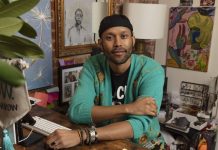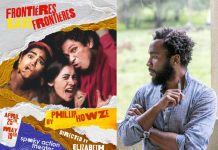By LeeAnét Noble
Mwalimu
Swahili for a person whose vocation is
teaching others, especially children
Though it all felt magical growing up, now I can see that as a single mother and performing artist, my mother had to navigate her career strategically. Career opportunities for her were treasured learning experiences for me. Attending Dr. Kelsey E. Collie’s program, the Howard University Children’s Theatre, where my mom was a teacher, was pure gold.
One hot and sweaty summer in the District when the hits were Meatloaf’s “I Would Do Anything for Love” and Jodeci’s “Lately,” I skipped with anticipation, one step behind my mother, toward the brick and glass exterior of People Community Church on 13th Street in Northwest Washington, DC. Once inside, the buzz and joy of hundreds of kids talking about the acting and dance classes they were going to take, and the shows they could not wait to perform in, made its own song. My mother went to teach her classes and I entered a world of creation with other kids who loved theater and the arts.
When Dr. Kelsey E. Collie, founder of the Howard University Children’s Theatre and Playmakers Repertory Company and award-winning playwright, stepped up to welcome us, his smile was the first thing I noticed. He glowed as bright as the energy exuding from the many students in the space.
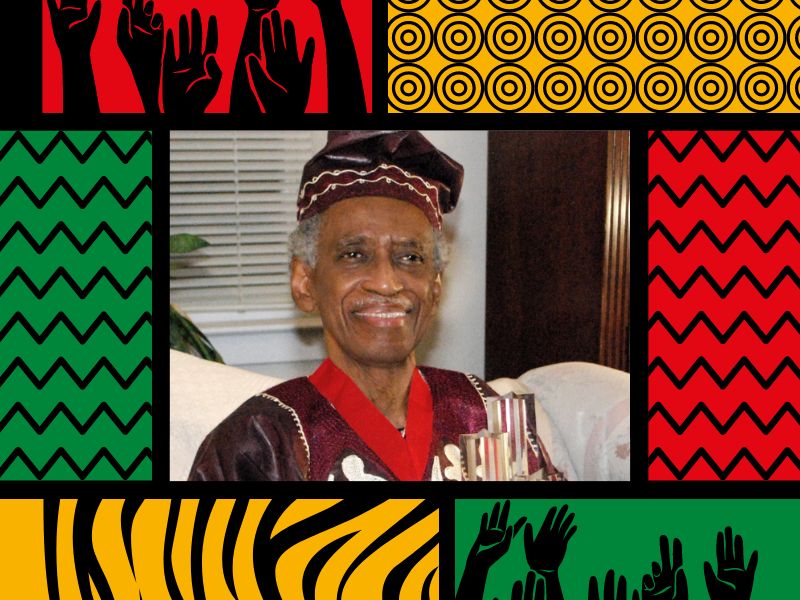
That summer, now several decades ago, I created art on stage with DC-based artist Frankie L. Bethea and renowned actor Gregarious Reid. At the time, we were all just children expanding our lens of theater under the leadership of Dr. Kelsie E. Collie, who founded the program in 1973, just five years after the four-day riot and protest of the murder of Dr. Martin Luther King Jr.
After only one year in operation, the Howard University Children’s Theater was named the most outstanding new children’s theater in the nation by the Children’s Theater Association. Collie ran the program without pay for six years, training young performers and taking them as far as Ireland to perform in theater festivals. Dr. Collie was also a tenured professor at Howard University and then Assistant Dean of Fine Arts. He remains professor emeritus at Howard University.
Today, with a career in theater and the arts spanning over 50 years, Dr. Kelsey E. Collie is part of the foundation of theater in DC. His work as a director has been seen at such theaters as Kennedy Center and Lincoln Center. While a professor at Howard University, Dr. Collie taught Taraji P. Henson, Anthony Anderson, and Chadwick A. Boseman, among others. With over 45 years of dedication to teaching theater in the District and around the world, he continues to create theater opportunities for young people today.
On Saturday, January 20, 2024, I had the honor of speaking with Dr. Collie about his journey and contributions to DC theater.
What was your introduction to theater?
I used to make backyard dramas growing up with myself, my younger sister, and the neighborhood girls. We performed plays in the backyard using the storm shutters as our act curtains. Children paid five cents to see it and we served cookies and lemonade!
The first play I saw was put on by the Florida A&M Theater Department. Randolph Edmonds directed it. What was that play? Oh yes, it was Cry, the Beloved Country. It was interesting because it was the forerunner to Martin Luther King Jr. There were so many similarities in his story and the story of the play.
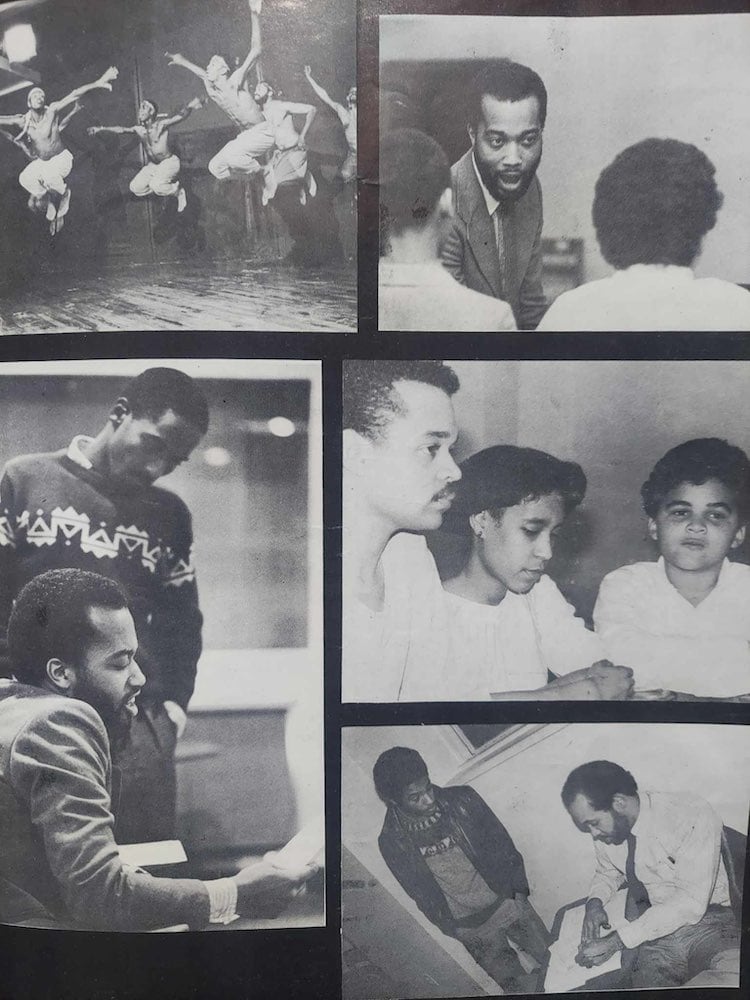
What inspired you to start Children’s Theatre?
Surprisingly enough my first love is journalism — I was a senior editor in high school. I wanted to major in it, but my dad said it was not for Black men at that time — you have to make money and raise a family. So I studied to be an elementary school teacher.
In college in my speech class, we had to learn Hamlet. When it was my turn the teacher said, “You should major in theater,” and I changed major without my parents’ permission and fell in love with theater.
I always had a love for children. I was teaching English at Howard University and the theater students in my class encouraged me to send my resume to the Chair of the Theater Department, Theodore G. Cooper. He said to me, “I just noticed that you got a master’s degree in writing,” and I said, “Yes,” and he says, “Well, my wife has written a children’s play and I have a grant to do it this summer — would you be interested in directing it?” I said, “Sure.” Then he says, “Well, we have an opening; we’re going to create a whole children’s theater department for you to head up,” and I said, “OK, fine.”
I created the curriculum and then I said to him, “I’m teaching the college students — I would also like to give them experience in working with children. Is it alright if I start training young children from age 5 up?” He said, “OK, let’s try it,” and so we did and the rest is history. One year after I created that we got a national award as the most outstanding new children’s theater in the country!
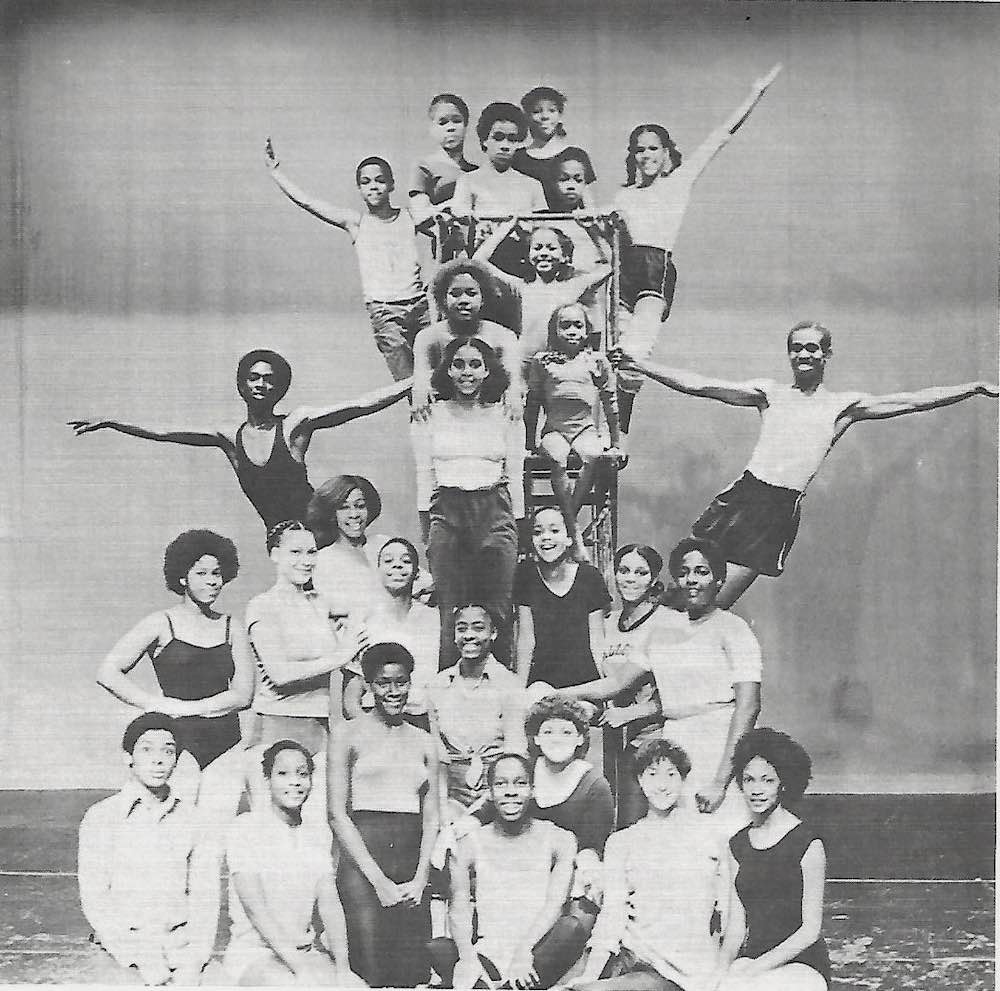
Your list of accomplishments is truly incredible, what would you say has been the highlight of your career?
Having the work accepted internationally! I was invited to Ireland, as part of the Dundalk Maytime International Festival, and we went three times!
We were new in Ireland coming from DC. We were so accepted, and the children became ambassadors. It was interesting how they were able to perform and be a part of the children’s community and were able to learn about each other’s culture and their differences. It was very important. It opened them up to the world and opened me up.
When I was the American delegate for children’s theater under communist rule in Czechoslovakia, I was told to be very careful — soldiers had guns on their shoulders!
I wanted to work with children who spoke different languages. I sat out on the square and some of the children who performed for us earlier in Little Red Riding Hood came out. The big bad wolf said, “Bora Bora Bora” and I yelled out “Bora Bora Bora” and they laughed and joined me, and those lines from the play were the only words we both knew, and we played games and when I gave instructions and showed them what to do, they did it. It was really something. The interpreter told me after, “You know you could be locked up for that!”
What is your dream for theater in DC?
I would like to see theater in DC for children in particular be more developed, especially for African American children. We have some of the most talented young people but a lot of times they’re stifled.
A school for students who want to be in theater with designed curriculum for them. A lot of our young people have talent that lies dormant. Similar to Duke Ellington, a school in the early stages of life, so they are prepared for high schools and colleges. Unfortunately, when I tried to start one, I didn’t have the resources or the people to support it, unlike today.
Ebony Vines (workforce and economic development specialist) came along and is interested in starting the Children’s Theatre again. We not only taught theater; we also taught history, art, and culture and developed talents.
Reflection
We spoke with Howard University Children’s Theatre Alum Greg Alverez Reid about his experience with Dr. Collie. Reid is a New York City–based actor, producer, and voiceover artist most recently appearing in the Pulitzer Prize–winning play Fat Ham at Studio Theatre in Washington, DC. He can also be seen currently in the Hulu series Wu-Tang: An American Saga and the HBO/HBO Max film Between the World and Me.
How were you first introduced to Dr. Kelsey Collie?
I met Kelsey at the age of 15 when I was working with the DC Summer Youth Employment Program. I signed up as an actor and they placed me at The Children’s Theater Experience/Playmakers Repertory Company, which was started and led by Kelsey. I was supposed to be a camp counselor, but once they learned I was an actor and saw my work, I was offered to join the company.
After two years of the SYEP and working with the company, I was headed to college. I applied to a few HBCUs and NYU to further pursue theater and acting. Right as the summer was winding down and the youth employment program was ending, Kelsey spoke to me and asked me where I would be attending college. I told him my tentative plans and he asked if I had considered Howard University. I was born and raised in DC, and grew up right near Howard, so didn’t plan to pursue that option and not go away to study. Kelsey convinced me to come to the campus and meet the head of the department and ultimately helped me get into the university and theater program that would change my life forever.
How did working with Dr. Kelsey Collie and participating in his programs inform the path that you are on and who you are as an artist?
I just closed a three-time-extended run of the Pulitzer Prize-winning play Fat Ham at Studio Theatre in DC. I’m also working on my third season of The National Battle of the Bands Presents, as a voiceover narrator, telling the history and legacy of HBCU marching bands.
I would say that working with Kelsey will always have a special place in my heart and in my life story because of the care and knowledge he afforded me as a young actor. It meant so much to me to have this Black man who was an artist and loved his craft giving back and nurturing the youth. Women had always poured into me but to have this Brotha as an example and a leader was priceless. He taught me professionalism at an early age. The Playmakers Rep Company was a professional company. So even as young adults we were paid for our work, signed contracts, and learned what it meant to be a working actor well before the age of 18. I will always be grateful for that experience and for him.
SEE ALSO:
Speak the names, tell the stories (part 1): Shining a light on DC theater history (series introduction by LeeAnét Noble and Lauretta Malloy)
Speak the names, tell the stories (part 3): The DC Black Repertory Company
Speak the names, tell the stories (part 4): An ode to Mike Malone
Speak the names, tell the stories (part 5): LaVerne Reed, founder of the LaVerne Reed Dance Company



